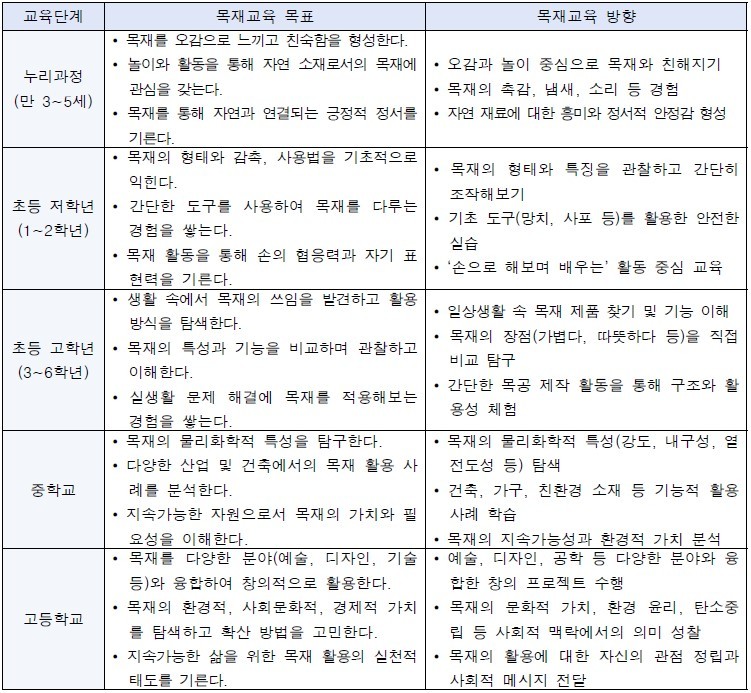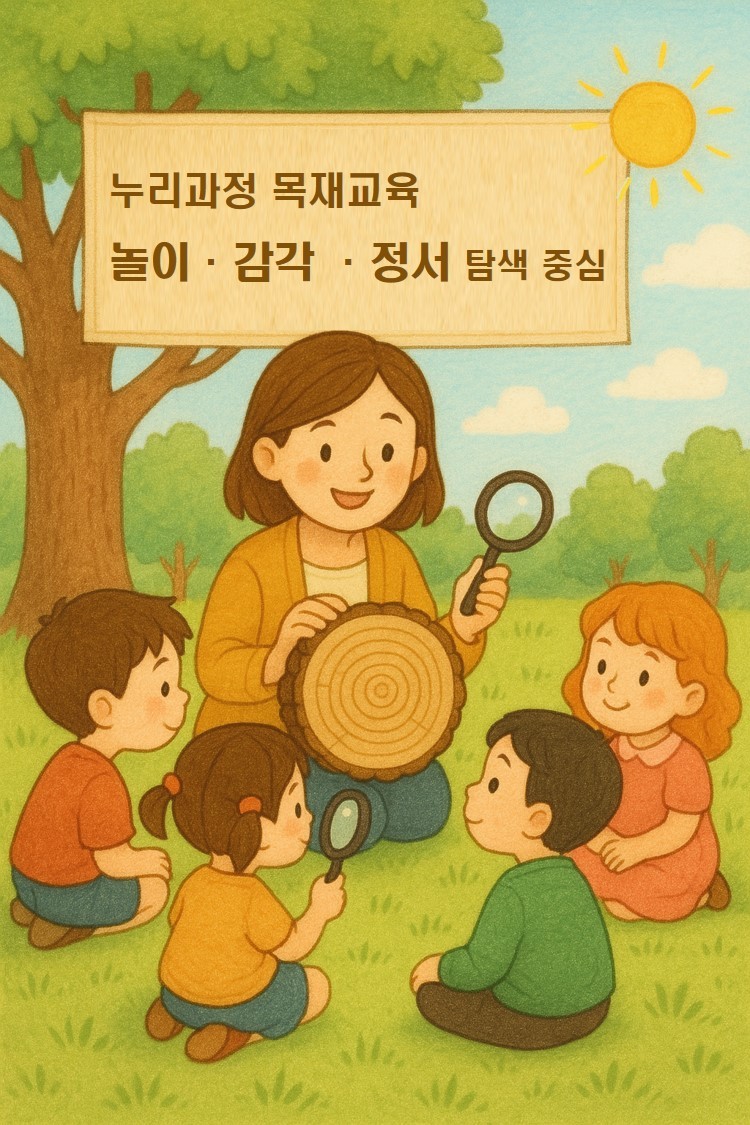The Korea Forest Service National Forest Research Institute (Director Kim Yong-gwan) announced on the 21st that it newly developed the ‘Standard Guidelines for Wood Education Linked to the Nuri and Regular Curriculum’.
According to the 2023 National Environmental Awareness Survey, environmental education is found to be most effective during youth and elementary school years. However, the current wood education is mainly operated as a one-time experience, prompting criticism for the lack of continuity and effectiveness.
Thus, the National Forest Research Institute analyzed the latest Nuri curriculum and regular curriculum, referencing overseas cases such as Japan’s ‘Mokyuk’ and Sweden’s ‘Slöjd,’ to create a wood education framework suitable for domestic circumstances.
The newly developed standard guidelines propose a systematic learning by developmental stages, divided into five stages: ▲ Nuri Curriculum (experience of wood culture) ▲ Lower Elementary (basic use of wood) ▲ Upper Elementary (exploration of wood use) ▲ Middle School (exploration of wood functions) ▲ High School (creative convergence of wood). Based on this, a total of 40 tailored educational programs were developed, including ▲ 8 for Nuri Curriculum ▲ 13 for Lower Elementary ▲ 9 for Middle School ▲ 10 for High School.

The National Forest Research Institute recommended pilot operations and usage so that the guidelines can be applied in schools, expecting them to contribute to recognizing wood as a sustainable resource and spreading wood culture.
Yang Ji-yoon, a researcher at the National Forestry Science Institute’s Wood Industry Research Division, stated, “The standard guidelines are designed to go beyond fragmentary making experiences and allow learners to explore the value of wood.” She added, “We will strive for field distribution so that future generations can learn to live with wood and grow as protagonists in a carbon-neutral society.”
